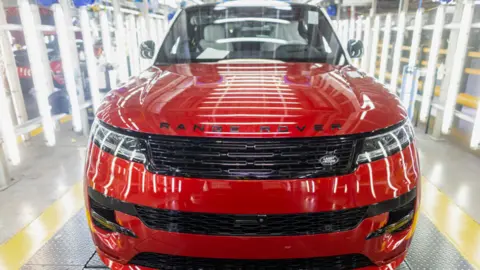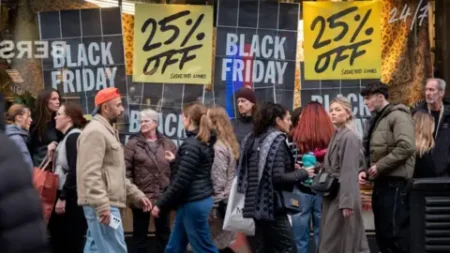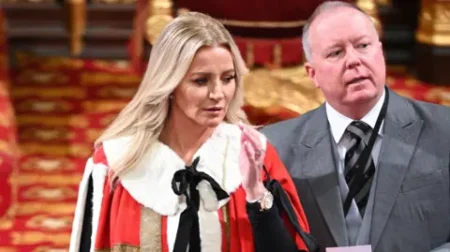Jaguar Land Rover (JLR), a prominent player in the luxury automotive market, has announced an intention to reduce its workforce by up to 500 management positions, a decision that has sparked considerable discussion within the industry. The car manufacturer has attributed the downsizing to ongoing challenges stemming from trade tariffs imposed by the United States, which have significantly impacted its operational efficiency and profitability.
In the recent quarter, specifically the three months leading up to June, JLR disclosed a decline in sales, which it linked directly to the US trade tariffs. The firm paused its exports to the American market as part of this response, and it also started winding down older models within the Jaguar lineup. This two-pronged approach illustrates the company’s strategy to cope with external pressures while reassessing its market position.
To facilitate the job reductions, JLR has introduced a voluntary redundancy scheme, indicating a desire to minimize the impact on its employees. Significantly, the company stated that the cuts would represent less than 1.5% of its British workforce. The company characterized these decisions as regular business practices, underscoring the necessity of adapting to changing market conditions.
Trade tariffs, particularly those enacted by US President Donald Trump, originally imposed a 10% tax on British cars sold in the United States. JLR warned that these tariffs could exert a negative influence on its profits. Industry expert Professor David Bailey from the Birmingham Business School asserted that such tariffs have played a substantial role in JLR’s recent difficulties, pointing out that just a year prior, the company had reported record profits of £2.5 billion, marking its best performance in a decade.
Despite facing these economic challenges, JLR has also been in a hiring phase, particularly in preparation for the production of electric vehicles (EVs). Professor Bailey explained that while tariffs have increased, tapering from 27.5% to 10%, the burden remains significant compared to the previous 2.5% rate. He pointed out that JLR’s Defender, one of its best-selling models, is manufactured in Slovakia, which is still subject to the higher tariff rate of 27.5%.
The imposition of tariffs on imports by President Trump has led JLR to halt vehicle shipments to the US earlier this year. Following negotiations, the import tax was later reduced, allowing JLR to resume its shipments. JLR stands as a major employer in the UK’s automotive sector, with an extensive workforce exceeding 30,000 individuals.
Preet Kaur Gill, a Labour MP representing the Edgbaston constituency in Birmingham, emphasized the importance of trade relations with the US, particularly regarding tariff reductions that have contributed to the preservation of jobs within JLR. She noted that the recent reduction of tariffs helped retain 12,000 jobs and that the ongoing relationship between the UK and US was vital for future employment prospects.
JLR operates multiple production sites across the United Kingdom, particularly in Solihull, Wolverhampton, and Halewood in Merseyside, where it manufactures a variety of models, including luxury Range Rover SUVs. The decision to cut management positions illustrates JLR’s strategic realignment in response to market pressures, while also emphasizing the broader implications of international trade policies on the automotive industry.
As Jaguar Land Rover navigates these complexities, the focus will remain on maintaining its market position while transitioning towards a more sustainable and electric-focused future, balancing the need for growth with the realities of a challenging economic environment.











